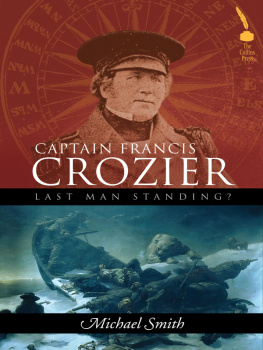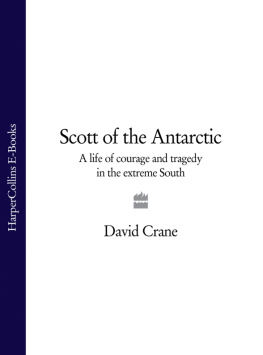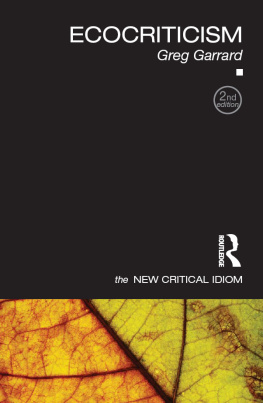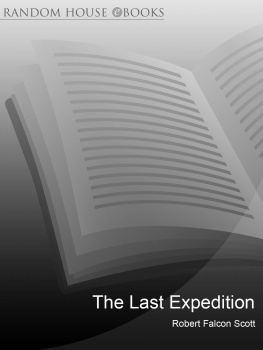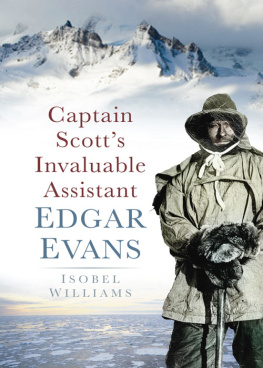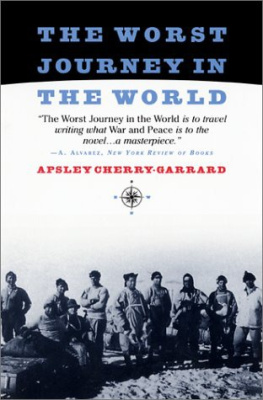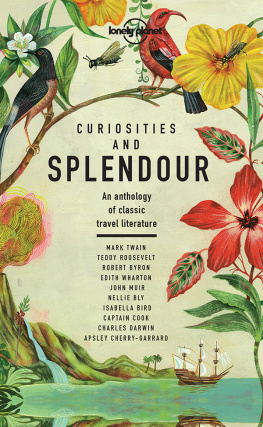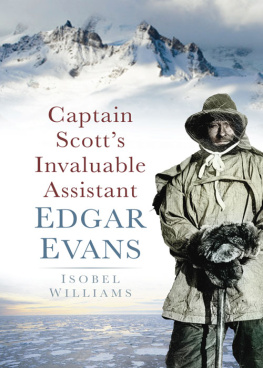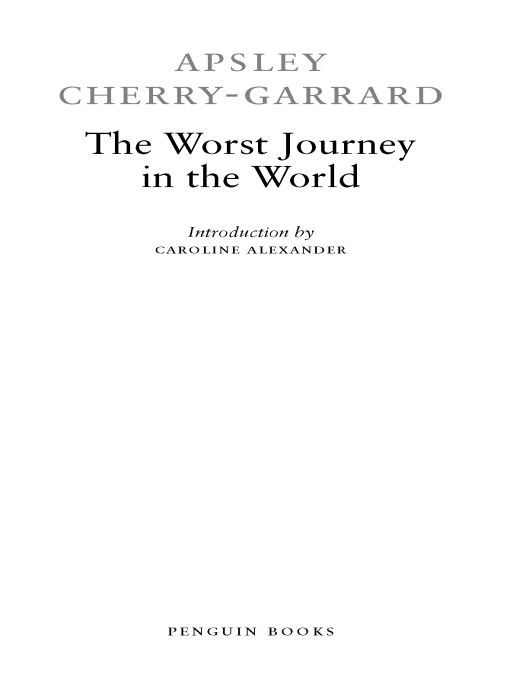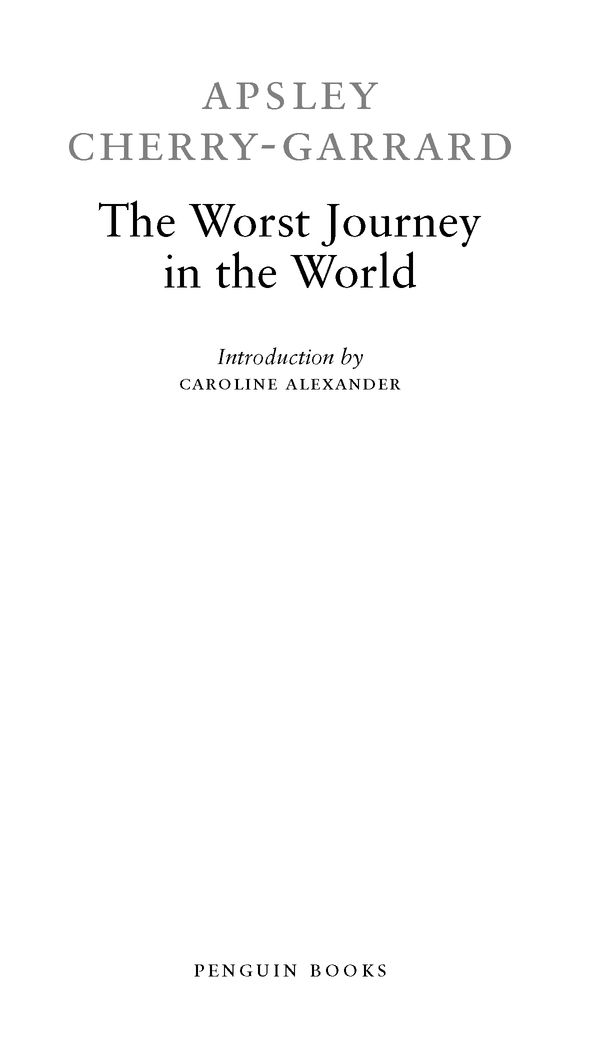Table of Contents
THE WORST JOURNEY IN THE WORLD
APSLEY CHERRY-GARRARD was born in 1886 and educated at Winchester and Christ Church, Oxford. At twenty-four, he was one of the youngest members of Scotts British Antarctic Expedition (1910-13). In 1914 he joined an expedition to China to investigate schistosomiasis. During the First World War he commanded a squadron of armoured cars and served in Flanders until 1915. In that year he was invalided out of the Navy and during his convalescence started to write The Worst Journey in the World. In 1916 he was influential in stopping the killing of King Penguins on Macquarie Island, which was subsequently declared a bird and seal sanctuary by the Tasmanian Government. He contributed introductory chapters to Wilson of the Antarctic (1933) and Life of Bowers (1938) and a personal memoir to a symposium, T. E. Lawrence by his Friends (1937). He died in 1959.
CAROLINE ALEXANDER is the author of the international bestseller The Endurance and four other nonfiction books including The Bounty. She has written for The New Yorker, Granta, Smithsonian, Outside, and National Geographic. She is also the writer and co-producer of the award-winning documentary The Endurance.
Introduction
In 1935, Apsley Cherry-Garrard on making an application to join the Athenaeum, a gentlemans club in London, was asked to state his profession. His reply, author and explorer, could have been perceived as somewhat overblown, given that he had written precisely one book and had participated in precisely one expedition a quarter of a century earlier. In fact, his self-characterization was unduly, and characteristically, modest, for the single book was The Worst Journey in the World, one of the undisputed classics of exploration literature, while the single expedition the subject of the book had been Captain Robert Falcon Scotts final and fatal expedition to the South Pole in 1910.
Few stories have so tenaciously gripped English popular imagination as that of Scotts last expedition and the death of his returning Polar Party on the Antarctic ice. Although Scott had failed in his objective to claim the Pole for England, as well as to bring his men safely home, national sentiment perceived his deeds and death as having rendered the highest office of patriotism, on par with Nelsons death at Trafalgar, or General Gordons last stand at Khartoum. Much had to do with the timing of the tragedy, news of which reached England in 1913, and continued to percolate throughout the First World War. The dreadful fate of Scott, who had died in struggling to bring glory to his nation, was much suited to the mood of patriotic national mourning that followed the dreadful slaughter of that war.
Embraced with unreflective, passionate immediacy, the story was also, from the start, an easy prey to sentimental manipulation. Scotts gentlemanly martyrdom on behalf of simple seaman Evans, the patient, fatal vigil in the blizzard-bound tent, and the high-flown determination that death is very kind to heroes: These and other set-pieces formed the subject of many a sermon throughout English Christendom. A film made by the expeditions photographer, Herbert Ponting, later became a source of patriotic inspiration among soldiers in the trenches of the great and terrible war. [F]or my own sake I do not regret this journey, which has shown that Englishmen can endure hardships, help one another, and meet death with as great a fortitude as ever in the past, was the stirring assessment Scott himself had written for posterity, at what he knew to be the end of his own life. Hallowed and sanctified by the loss of its heroes, the saga of Scotts dreadful failure passed swiftly into shining, unassailable legend.
Of course, not every member of this historic and ill-fated expedition died on the ice. Of the thirty-three men who formed the land contingent of the British Antarctic Expedition, disembarking the Terra Nova in January 1911, at McMurdo Sound, all but five would survive and return home. These men, the survivors, were destined to live with their memories of the unembellished truth, as well as to partake in the legend. And of these survivors, none was more haunted by personal remembrance of the actual circumstances of the expedition, or more keenly needful to determine the factual basis for why certain things had, or had not, happened than Apsley Cherry-Garrard.
Apsley George Benet Cherry-Garrard, or Cherry, as he was known to his companions, had served the role of what Scott termed adaptable helper, a title that reflected his acknowledged lack of qualifications of any kind for the expedition. Born in 1886, Cherry was the son of a British army officer, who had married late in life. On the death of a brother and an aunt, Cherrys father had inherited two estates as well as the Garrard name. Suddenly securely established among the landed gentry, Cherry had received the traditional gentlemans education and grown up knowing he would never need to learn a profession. At Oxford, he first read Greats, the classics, and then on discovering his Latin and Greek were not up to standard, had changed to modern history. In later years a schoolmate recalled Cherry as having been extremely shy, sensitive, and shortsighted. Perhaps his most satisfying experience at Oxford was the discovery that he was not a bad rower.
How this wholly unremarkable young man even thought of applying for a place on the British Antarctic Expedition is one of the many glorious improbabilities of that heroic age of amateur discovery. The catalyst for his decision had occurred in 1908, when Cherry made the acquaintance, through a cousin, of Edward, Uncle Bill Wilson, a veteran of Scotts first 1901 Antarctic expedition, and one of Scotts most trusted friends. Already, at their first meeting, Wilson was speaking of a future expedition that would finish the job of the first, and such talk had fired Cherrys imagination. Thus, when, in 1909, Scott officially announced his next venture, Cherry was one of 8,000 men to apply. After some false alarms and rejections, he was eventually selected, mostly on the basis of Wilsons affectionate regard for him and his cousin, and partly on the basis of Cherrys willingness to contribute to the expeditions funding. Putting it quite baldly, I learn that if you subscribe 1,000, there would be a good chance of your being accepted, cousin Reginald Smith had written to Cherry.
A great deal has of course been written about Captain Scott, or Scott of the Antarctic as he came to be known, ranging from the historically adulatory to the more recently disparaging, but it is Cherrys portrait of this baffling man that remains the most finely drawn and insightful. His was a subtle character, full of lights and shades, was how Cherry introduced his most extended characterization of Scott:
England knows Scott as a hero; she has little idea of him as a man. He was certainly the most dominating character in our not uninteresting community: indeed there is no doubt that he would carry weight in any gathering of human beings. But few who knew him realized how shy and reserved the man was, and it was partly for this reason that he so often laid himself open to misunderstanding.


